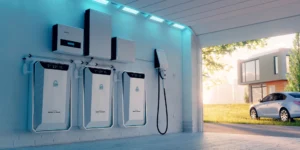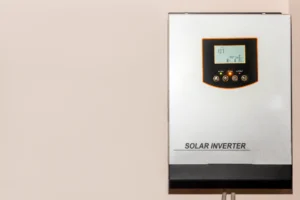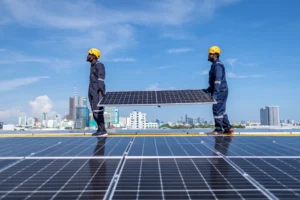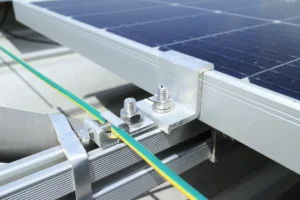
Research into renewable energy has gained significant momentum in recent years.
Governments have sought to incentivize residential solar systems to reduce emissions and contribute to a more sustainable future.
This article examines government grants available for those wishing to install residential solar systems, exploring potential benefits and drawbacks associated with these incentives.
Incentivizing homeowners to invest in renewable energy sources such as solar can be beneficial on many levels.
Solar panels generate clean electricity, which is both cost-effective and reduces dependence on fossil fuels.
Furthermore, they are relatively easy to maintain, making them an attractive option compared to other forms of renewable energy technology.
Additionally, governments often offer generous financial subsidies that make installing a system much more affordable than it may otherwise seem.
The sun radiates its energy, giving life to all living things on the planet. With this limitless source of power and an ever-growing need for sustainable energy, people are turning to solar panel systems to reduce their electricity bills while doing something positive for the environment.
Government grants have been created to help those who want to go green but may not have the financial resources or knowledge needed to do so. By providing free money for residential solar systems, these government grants can make it easier than ever before for homeowners to switch over from traditional sources of electricity and begin taking advantage of the cleanest, most affordable option available today.
This great opportunity allows citizens freedom through sustainability—and they don’t even have to break the bank to participate!
The financial freedom that comes with owning a residential solar system can be life-changing. Adding to the benefits of this technology is the fact that governments are offering grants to help make it more accessible for households, making renewable energy an even more attractive choice.
With government funding now available, there has never been a better time to consider investing in solar power systems. Government grants provide a great way to cover a significant portion of upfront costs and reduce monthly expenses while helping homeowners save on their utility bills over time.
By utilizing these programs, individuals can enjoy the advantages of renewable energy without breaking the bank. Furthermore, those who install such systems may also qualify for additional incentives from local authorities or utilities as well.
For many people, taking advantage of government grant opportunities makes installing residential solar systems much more cost-effective and helps them reap greater long-term savings than ever before. Taking stock of one’s current situation and exploring options for how to best capitalize on these initiatives can open up huge possibilities when it comes to powering homes sustainably and affordably.
Making your home more sustainable and saving money has never been easier. With government grants for residential solar systems, you can turn your house into a shining beacon of efficiency, giving off energy that emits light and freedom.
Here are three simple steps to get started:
Not only is this process low cost, it’s also incredibly rewarding – both financially and emotionally!
Not to mention the environmental benefits of reducing carbon emissions and helping combat climate change by utilizing renewable energy sources like sun rays instead of fossil fuels. Taking these small steps towards sustainability will help future generations enjoy a cleaner, healthier planet while allowing homeowners to save money on their monthly electricity bills with little effort.
It’s truly an opportunity too good to pass up!

Making your home more sustainable can be a great way to save money and help the environment. By taking advantage of government grants, you can make this process even easier by going solar! Solar energy is a renewable resource that uses no fuel or emissions when producing electricity, making it an attractive option for those looking to reduce their carbon footprint.
| Pros | Cons |
|
|
|
Home | Lower bills. No emissions tax credits available | High initial cost. Requires maintenance |
Business | Tax incentives Increase customer loyalty | Significant upfront costs |
Solar systems offer numerous advantages over traditional energy sources, such as lower electric bills, tax credits available in some states, and, most importantly – no air pollution from burning fossil fuels. For businesses, the benefits include increased customer loyalty due to sustainability efforts, plus there are certain tax incentives depending on where your business is located. While these advantages are clear, it is important to note that installing solar panels often involves high upfront costs, which may not be feasible for everyone. Additionally, they require regular maintenance to ensure optimal performance.
By considering the pros and cons of residential solar systems, one can decide whether investing in them is right for them. The decision becomes much simpler with government grants now available to offset some of these expenses! Investing in a sustainable lifestyle has never been easier than it is today – take advantage of government grants today and go solar!
A tax credit is a form of financial aid that can be used to offset the cost of residential solar systems.
It allows individuals or businesses to reduce their overall income tax liability, typically in exchange for investing in renewable energy sources such as solar power.
This type of incentive encourages investment and growth in the renewable energy sector by providing taxpayers with an immediate return on their investments.
The amount of money available through this incentive varies from year to year and depends largely on funds allocated by local governments or other regulatory bodies.
In some cases, these credits are offered as a one-time, lump-sum payment, while others may provide ongoing benefits over multiple years.
Regardless of the structure, they represent an important opportunity for those considering taking advantage of government grants for residential solar systems.
With careful planning, it is possible to maximize the benefit of this generous funding source.
The federal solar tax credit can be a great way to save money on the cost of installing a residential solar system. However, many people are unsure if they are eligible for this tax break.
To help clear up any confusion, it is important to understand what determines eligibility and how the process works.
First, anyone who has purchased or leased a new solar energy system for their home may be able to claim the federal solar tax credit as long as they have not already used the maximum amount allowed in previous years.
Additionally, homes must be located in the United States and meet certain standards set forth by the Internal Revenue Service (IRS). Furthermore, homeowners must also file an IRS Form 5695 with their annual income taxes in order to receive the full benefit of this program.
In addition to these requirements, there are other factors that could impact one’s ability to take advantage of this valuable opportunity. For example, some states offer additional incentives beyond those provided at the federal level, which might require different forms or documentation.
Moreover, only taxpayers who itemize deductions will qualify for this credit since all credits taken directly reduce taxable income rather than reducing total taxes owed after deductions. It is important to research all applicable guidelines before filing your return in order to maximize financial savings.
The federal solar tax credit is an incentive designed to help offset the cost of installing a residential solar energy system. With no upper limit, it allows homeowners and businesses to deduct 26 percent of the total installation cost from their taxes over several years.
Claiming this benefit requires filing IRS Form 5695 and providing it along with other documents when filing taxes each year.
In order to be eligible for the federal solar tax credit, there are several criteria that must be met:
Organizations such as Solar United Neighbors can provide guidance on how best to navigate these requirements and ensure eligibility for maximum benefits under this program.
With proper preparation, taxpayers can take advantage of this opportunity to reduce their costs while making a meaningful contribution towards a renewable energy future.
The quest for harnessing renewable energy has become a matter of great urgency in recent times. With the growing awareness about climate change, governments worldwide are actively seeking ways to promote sustainable energy sources like solar power. One of the most effective initiatives taken by the government is providing grants for installing residential solar systems.
Department of Energy (DOE) Solar Grants provide homeowners an opportunity to reduce their electricity bills and contribute towards reducing global emissions through clean energy production. These grants have several advantages, including tax incentives, loan assistance programs, educational resources, etc. The DOE also offers rebates on installed solar panel systems that help offset some costs associated with going solar.
Advantages | Benefits | Offers |
|
|
|
Tax Incentives | Reduced Electricity Bills | Rebates on Installed Systems |
Loan Assistance Programs | Contribute Towards Emissions Reduction | Educational Resources & Support Services |
Increased Property Value | Increased Home Efficiency | Solar Panel Leasing & Purchasing Options |
Government grants for residential solar systems can greatly reduce energy costs and help the environment.
According to government figures, up to 30% of homeowners with good credit quality are eligible for federal tax credits when installing solar panels. This is an attractive incentive that could make investing in renewable energy more affordable than ever before.
Furthermore, many states offer additional incentives such as rebates or net metering programs that can drastically reduce the cost of installing and maintaining solar systems.
With so many options available, households have never been easier to reap the benefits of clean, renewable energy from solar power.
The Department of Energy provides information about solar grants through its Solar Energy Technologies Office.
Grants are available for residential solar systems, which can help to reduce energy costs and promote a clean energy future.
The office also offers webinars, workshops, and technical assistance from experts to assist individuals in making the best decisions when considering purchasing or installing a new system.
Applicants should visit the Solar Energy Technologies Office website for more detailed information on current grant opportunities and review their funding programs page.
Here they will find descriptions of each program, eligibility requirements, and application instructions.
Additionally, an extensive list of resources provides additional support throughout the process, including industry best practices, financial calculators, videos, case studies, and other helpful guides.
Investing in a residential solar system can be costly, and the question of whether or not there are grants to cover the full cost is important for many individuals.
It is beneficial to explore options that may help offset this expense.
Government grants are available for those looking to install residential solar systems. Still, it is necessary to review the specifics of each grant before determining if they will fully cover the costs associated with installation.
When it comes to government grants for residential solar systems, one question arises: is there a limit to how much can be received?
While the answer isn’t always simple, generally speaking, limits do exist. For example, many incentives and subsidies are capped at a certain amount – typically somewhere in the range of $10,000-$30,000 – depending on where you live and what kind of system you’re installing.
Moreover, most states require that any incentive or grant program cover only 30-50% of the total project cost.
Ultimately, understanding your local regulations when it comes to renewable energy is key in determining just how much money you can get back from the government when investing in a residential solar system.
Solar energy is a renewable, cost-effective form of energy that can help reduce reliance on traditional forms of power and promote sustainability.
In some cases, governments provide financial incentives to assist with the installation and maintenance costs associated with solar systems, such as grants or subsidies.
These incentives vary between countries and regions; thus, it is important to research any applicable eligibility criteria to determine if any grants are available specifically for solar panel maintenance.
The notion of achieving financial freedom is a dream that many strive for, yet few are able to attain.
Low-income households often face significant economic strain and struggle to make ends meet.
Fortunately, various government grants have been available in recent years specifically designed to assist such individuals.
These grants can be used for the installation and maintenance of solar panel systems as well as other energy efficiency measures, helping low-income households save money on their electricity bills and access clean, renewable energy sources with ease.
Incentives for residential solar systems, in addition to grants, are available.
These types of incentives can come from the government, or local utilities or other organizations can provide them.
Depending on where a homeowner lives, these incentives may include tax credits, rebates, net metering policies, and other options that help reduce the solar system’s cost.
Some states have specific programs which provide additional incentives for homeowners who install solar energy systems in their homes.

What Is The Expected Lifespan Of Batteries In A Residential Solar System? Overview of Residential Solar Systems Residential solar systems have gained popularity in recent

Difference Between String And Microinverters In A Solar Panel System? The world is gradually shifting towards renewable energy sources, with solar panel systems being one

What Is The Average Roi For A Residential Solar Panel System? As the world becomes increasingly aware of the need to transition to sustainable energy

What Are The Most Common Mistakes When Getting A Residential Solar? The most Common Mistakes When Getting A Residential Solar System Solar energy has become

How To Know If My Solar Compatible With Electrical Setup? Installing a solar panel system is an excellent way to reduce reliance on traditional electricity

How Do I Ensure That My Solar Panel System Is Properly Grounded? Properly grounding a solar panel system is crucial to ensure safety, optimize performance,